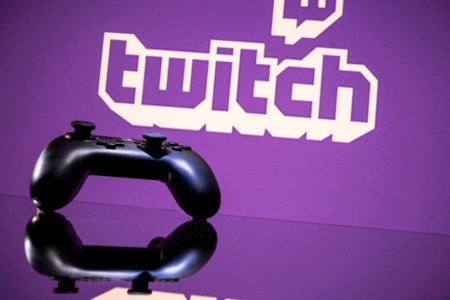
Lee Sang-hyeok. Johnathan Wendel. Topias Taavitsainen. Tyson Ngo.
Or, better known as Faker from “League of Legends”, Fatal1ty from “Quake”, Topson from “Dota 2”, and Tenz from “Valorant”, respectively.
The esports scene has birthed many games and careers over the years and witnessed the growth of prominent players to the top of their individual scenes.
But a career as an esports professional gamer is short-lived — the average retirement age is 23 for “Overwatch 2” and 26 for “Call of Duty”, reports the Washington Post.
Just take a look at one of our examples from above: Tyson “Tenz” Ngo, widely considered to be one of the greatest “Valorant” players of all time, announced on September 15, 2024, that he was retiring from competitive gaming — at the ripe age of 23.
Forever the face of Valorant@TenZOfficial announces his retirement from competitive play pic.twitter.com/1zjfWUaoL0
— Sentinels (@Sentinels) September 14, 2024
Ngo began his esports career in October 2019 as a “Counter-Strike: Global Offensive” player. His career achievements since then include two VCT Masters Champion (Reykjavík 2021 and Madrid 2024), VCT Masters Grand Finals MVP (Reykjavík 2021), and VCT Americas Kickoff Champion (2024).
Still, the game must go on.
As Ngo takes his leave from the competitive scene, accompanied by fellow Sentinels teammate, 26-year-old Gustavo “Sacy” Rossi, someone else must fill in their shoes.

As more of the world turns their attention to esports, more esports professionals are needed. Source: AFP
The growing demand for esports professionals
Esports might be an unorthodox area of study, but its surge in popularity across the world means growing demand for professionals in the field.
Just to recap, esports, or electronic sports, is competitive video gaming featuring multiple players who battle each other in tournaments held all over the world. A legion of fans attend these events or stream the action online, further fuelling this burgeoning industry.
Competitors themselves may get paid for participating in competitions, while winners can walk away with thousands of dollars in prize money.
For example, Johnathan “Fatal1ty” Wendel’s playing career from 1999 to 2006 earned him an esports record of US$450,000 in prize winnings. Meanwhile, Lee “Faker” Sang-hyeok, who has been playing professionally since 2013, has an estimated annual salary of nearly US$5 million, reported the Olympics in 2020.
Even those not playing professionally can make really good earnings.
ZipRecruiter reports that a career in esports management can earn you a salary of up to US$65,000 per year, and Indeed reveals that marketing executives in esports have a national average salary of US$50,777 per year.
The rise of esports degrees…and their worth
#TBT to 2017 when alumnus Victor Xin funded the first eSport scholarship in @uoft‘s history! If you’re a student with a passion for eSports and are active in a leadership role, this might be the scholarship for you. Read more https://t.co/YbQQRDe5l9 #NationalVideoGamesDay pic.twitter.com/1FxdEejq3f
— U of T Engineering (@uoftengineering) September 12, 2019
Naturally, where there is demand, there is supply.
A growing number of universities are offering esport-related degrees to prepare students for future careers in the field. Many of the programmes include elements of marketing, event management, and business.
Of course, there is some contention about the existence of esports degrees.
“Unless it’s about consumerism/consumer behaviour or sports/esports psychology, any other degree is pretty much useless at this point,” writes one Reddit user. “You can easily transition into esports from any degree with just engagement and consistency.”
Another writes: “The value of a GOOD esports major should come from how much LIVED experience it manages to give its students. Major sponsored internship programmes at big companies, 1-on-1 discussions with gaming alumni, providing resources and spaces for students to experiment with stuff like production equipment and running events. It’s not so much about the courses (which are still important mind you) and more about getting your hands directly into the thick of it and getting some good cred.”
What’s worth noting is also that esports degrees don’t prepare you to become a professional, competitive player.
In fact, lots of top players don’t have degrees. For them, it was a matter of putting their studies on hold — temporarily or permanently — to grind in the hours and hard work that the work demands.
It’s not an easy path to follow, especially since the chances of succeeding at the top level require not just dedication but also a healthy dose of luck.
These esports degrees, however, won’t really need you to bet on luck. Instead, these focus more on building and sharpening the skills you need outside of the gameplay.

An esports degree could teach you how to organise massive events that draws in thousands. Source: AFP
For instance, in the UK, Staffordshire University offers a BA (Hons) Esports programme, which focuses on the business of esports. Students here learn to host small and large-scale events, develop the skills for single-player and multi-player team events, create business plans to build teams, create online communities and promote their events through digital marketing, among other things.
Meanwhile, the MA Esports is designed to prepare students to lead the next generation of people working in the industry. Graduate students are expected to develop higher-level research and analytical skills through the development of a substantive research project of their choice.
“The focus will be on strategic level management skills, influencing policies and practices in the industry and developing a critical awareness of the sociological, political and legal landscape,” the website notes.
If that doesn’t pique your interest, maybe the College of Esports will.
The college is the world’s first educational institution with an exclusive university-level partnership with the British Esports Federation – the UK’s governing body for esports. As of 2024, they offer seven undergraduate programmes with a mission to help every student make a difference in people’s lives and benefit local, regional, national and international esports communities.
Here are a few other universities around the world offering esports degrees, or something related:
- Lambton College, Canada: Esports Entrepreneurship and Administration diploma
- University of North Dakota, US: BS in Esports
- Kajaani University of Applied Sciences, Finland: Bachelor’s Degree in Esports Business, Master of Engineering Degree in Game Business Management
- International University of Applied Sciences, Germany: MBA in E-sports Management
- Hong Kong Metropolitan University, Hong Kong: Bachelor’s in Sports and eSports Management
Disclaimer: This article was last updated on September 24, 2024.










